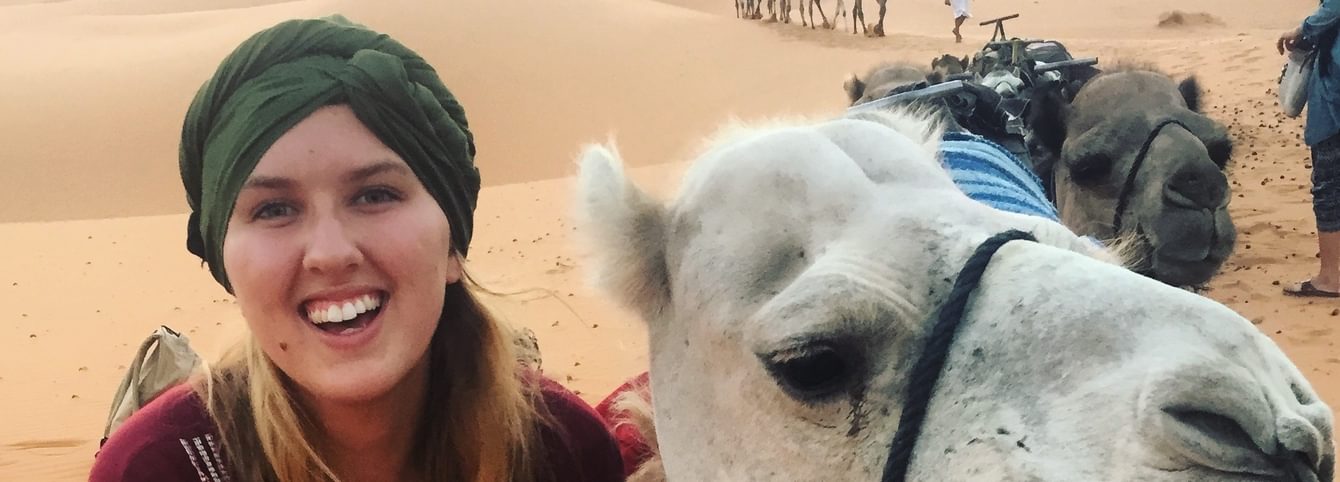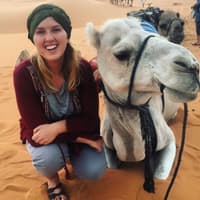Sarah Whipple
Sarah Whipple is an alumna of the 2017 CLS Arabic program in Meknes, Morocco. She is a rising junior at the University of Texas at Dallas studying International Political Economy. Sarah is also an alumna of the National Security Language Initiative for Youth (NSLI-Y) Arabic program. On a day off, you can find her cooking, making espresso drinks, filming and editing videos, or going to a museum. After finishing her undergraduate degree, Sarah hopes to attend law school and eventually work with refugees and asylum-seekers.
Mastery of Dialect
Although I studied Arabic prior to visiting Morocco, I quickly discovered that the Moroccan dialect bears little resemblance to Modern Standard Arabic, which is what I had been studying. At first, I had a really hard time communicating with my host community. On my first day in Meknes, I accidentally told my host family I was Rihanna instead of saying I was tired. Nevertheless, I tried to learn new vocabulary as much as I could. In about a month, I was able to speak with my taxi driver using the Moroccan dialect for the whole drive home from school. He was so impressed by an American speaking Moroccan Arabic that he gave me the ride for free! This experience was very meaningful to me because it showed me that the conscious effort to study a language really can make a difference in communicating with others.
Bridging Communities
Arabic is the fifth most spoken language in the world, so learning Arabic automatically opens the door to speaking to millions of people both in the United States and abroad. In a lot of ways, Arabic has been politicized in the U.S., so I think it is more important than ever to have non-native speakers learning and speaking the language. By learning Arabic, I hope I can provide services to Arabic-speaking immigrants and build community between native and non-native Arabic speakers. Although my interest in learning Arabic stemmed from my professional goals, studying another language has helped me communicate with communities I may not have otherwise been able to interact with. Languages are not just a collection of words - they strongly influence the way people think, feel, and identify.



